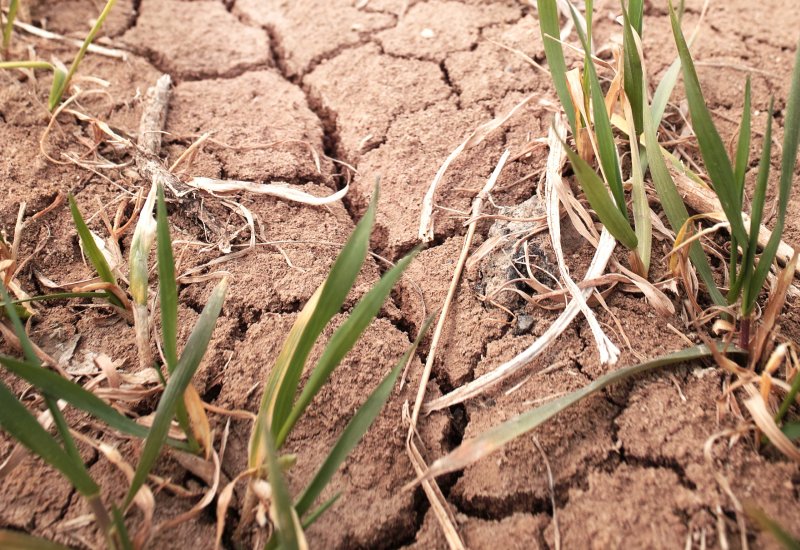
Farmers have been told to manage risk better and protect themselves with a crop yield safety net after weather extremes led to the smallest winter cropping area in decades.
Arable farmers have been impacted by recent adverse weather conditions, the repercussions of which will be felt on future crops.
Last summer, the UK’s highest-ever recorded temperature of 38.7C was reached in Cambridge, which was followed by England’s fifth wettest November on record.
Now a rural expert at insurance broker Lycetts has urged farmers to take steps now to protect their businesses from volatile weather periods.
Rupert Wailes-Fairbairn said the firm's latest insurance policy, Crop Shortfall Insurance, was designed to help farmers weather the storm by compensating for production shortfalls.
“In an increasingly volatile world, we farmers need to manage risk better,” said Wailes-Fairbairn, who grows oilseed rape and cereals at his farm in Northumberland.
“Over the past few decades, we have seen enormous changes to normal weather patterns and as sowing and growing conditions continue to be less than optimal, so too will our output."
Last autumn, relentless rain led to arable farmers planting the smallest winter cropping area in decades, he noted.
Consequently, farmers were forced to turn to spring cropping on some soils that are not really suited to spring establishment.
In turn, spring crops are shallower rooting and less able to tolerate moisture deficits and prolonged hot weather.
“We have the tools to manage price risk," Wailes-Fairbairn said, "You can sell forward, you can buy an option, or take cover on the futures.
“That’s why Lycetts developed the first index product in the UK to manage cereals and oil seed rape shortfall. It does what it says on the tin.
“The weather is, and will increasingly become, more unpredictable – now is the time to make sure the income from your crops is not.”
Crop Shortfall Insurance protects up to a quarter of the policy holder’s cereals and oil seeds output, he explained.
Pay-outs will be triggered if there is more than a 10 per cent difference between the Defra regional yield data for the year, relative to the eight-year regional average.
The product can cover either a farm’s total crop output or individual crops, such as winter oilseed rape, winter barley, winter wheat or spring barley.
For example, if there was a crop shortfall in the region of 25 percent, a farmer can expect a payout of 15 percent of their output.
If there was a 35 percent shortfall, 25 percent of your chosen output would be paid out, Wailes-Fairbairn said.
Cover for the following year’s harvest must be taken out for winter oilseed rape by the end of August, winter barley by the end of September, winter wheat by the end of October, and spring barley by the end of February.
